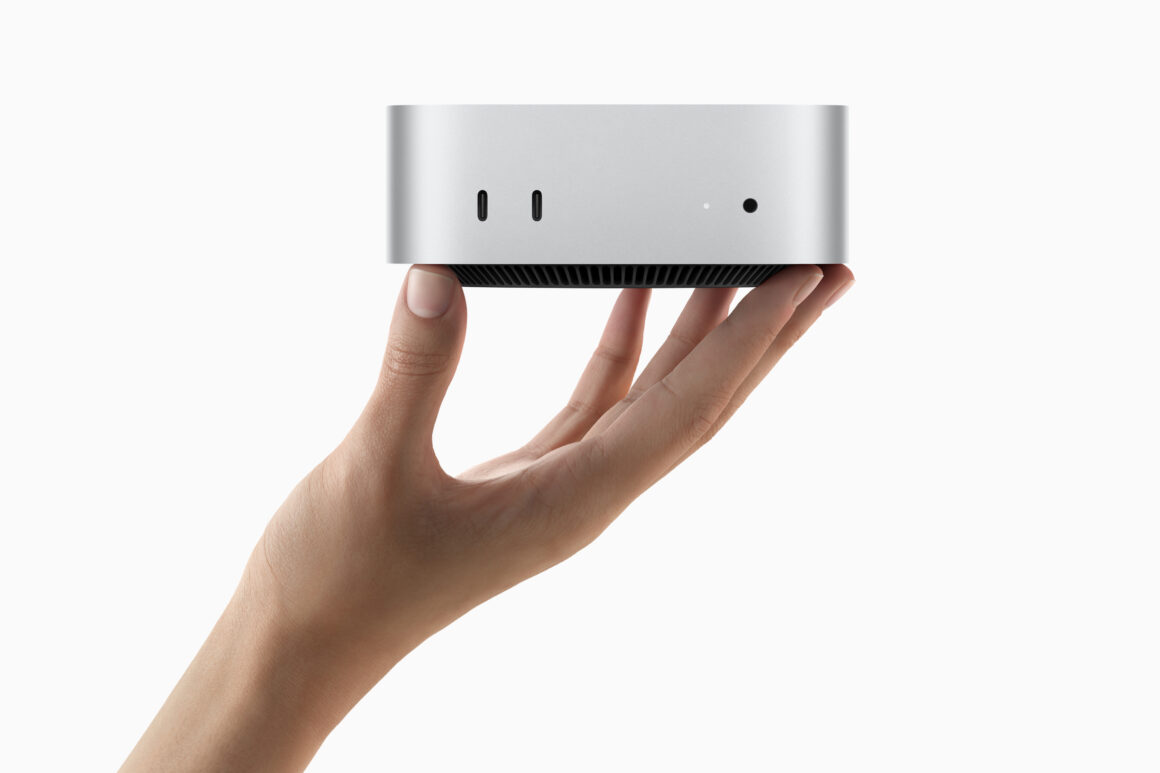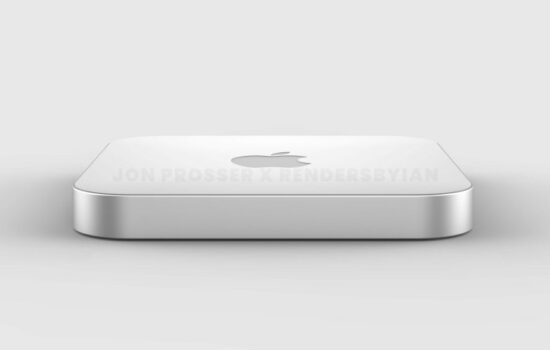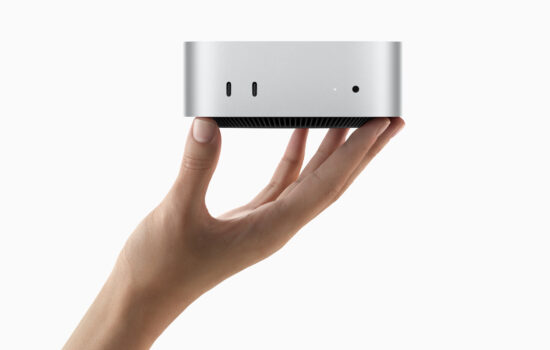Yesterday, the updated Mac mini finally made its debut with an all-new redesign in 14 years. It’s significantly smaller, yet packs a powerful punch with the M4 and M4 Pro. It’s also designed for Apple Intelligence from the ground up. Don’t let this tiny form factor fool you as there are also several tidbits that you may have overlooked.
All-New Design
The biggest headlining feature of the all-new Mac mini is clearly the significant redesign. Previously, the dimensions of the M2 Mac mini were 7.75 inches square and 1.41 inches tall. Now, the M4 Mac mini is 5 inches square and 2.0 inches tall. That’s up to a 50% reduction in volume. And the weight gets substantially reduced too. The previous M2 Mac mini weighed 2.6-2.8 pounds, and the M4 Mac mini now weighed 1.5-1.6 pounds. This new design makes the new Mac mini, Apple’s smallest and lightest Mac ever, yet Apple is still able to put an internal power supply inside of the Mac mini, so you just have to plug in the power cord, which is now braided – a very nice touch similar to other Apple’s braided cables.
New Power Button Location
You may be wondering where the power button is. The previous Mac mini, it’s located at the backside. But it’s now at the bottom of the redesigned Mac mini. Now, some folks may be a bit nit-picky on this, but when is the last time you ever need to press the power button to boot up from shut down? The new placement shouldn’t be a major issue since that’s what the air vents are for – to also slightly elevate the machine above the surface for you to easily slot your finger in to press the power button if you ever need to start up or force restart.
Display Monitor Support and Connectivity
Both models of the new Mac mini get improved display support. Previously, the M2 model supported up to two displays:
- one display with up to 6K resolution at 60Hz over Thunderbolt and one display with up to 5K resolution at 60Hz over Thunderbolt or 4K resolution at 60Hz over HDMI
Now, the M4 model can support up to three displays.
- two displays with up to 6K resolution at 60Hz over Thunderbolt and one display with up to 5K resolution at 60Hz over Thunderbolt or 4K resolution at 60Hz over HDMI
Previously, the M2 Pro model supported up to three displays:
- two displays with up to 6K resolution at 60Hz over Thunderbolt and one display with up to 4K resolution at 60Hz over HDMI
Now, the M4 Pro model gets an upgrade in the triple-display setup:
- Three displays with up to 6K resolution at 60Hz over Thunderbolt or HDMI
Both the M4 and M4 Pro models of the Mac mini feature the same set of I/O ports, including the same number of USB-C and Thunderbolt ports. The only difference is that the three Thunderbolt ports on the back of the M4 Pro model support Thunderbolt 5, which provides up to transfer speeds of up to 120Gb/s.
Pricing and Configurations
The biggest win for customers is that the M4 Mac mini starts with 16GB of unified memory. Additionally, the M4 Mac mini can be configured with up to 32GB of unified memory, up from 24GB on the M2. The M4 Mac mini can still be configured with up to 2TB of SSD storage.
The M4 Mac mini also gets an increase in the base memory as it now starts with 24GB of memory, up from 16GB. The M4 Pro Mac mini can still be configured with up to 8TB of SSD storage.
Both models can be configured with 10 Gigabit Ethernet, and you can also order the USB-C Magic Accessories and Studio Display as you go through the ordering process if you want the complete Apple package, but the beauty of the Mac mini is that you bring your own display, keyboard, and mouse (BYODKM). Thanks to the advanced set of connectivity, the Mac mini can be the center of any dream setup you can imagine.
The Mac mini starts at the same price of $599 ($499 in education). The new Mac mini is available to order today, with initial shipments arriving in Apple Stores and homes on November 8.









